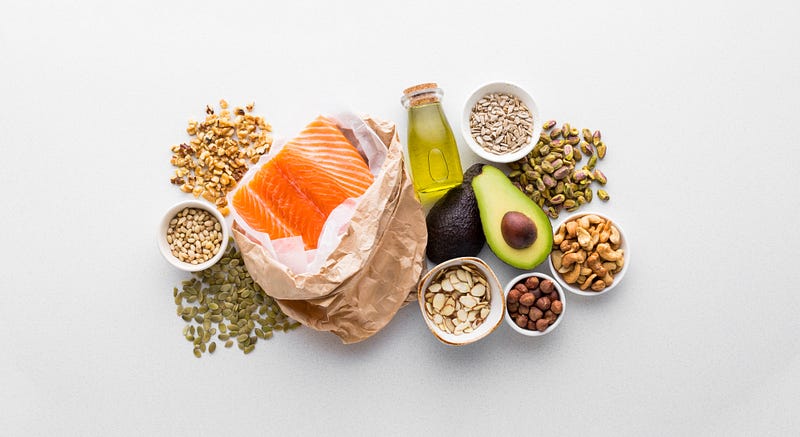All about dietary fats

Fat may be calorie dense, but it’s also one of the most important things we can put into our bodies. Our brain depends on adequate fat intake to ensure it’s working at its best. Not only this, fat plays an essential part in keeping our hormones, metabolism and reproductive system in check. Vitamins A, D, E and K are all fat-soluble, which means you need fats in your diet to be able to absorb these.. As you can see, fat is pretty useful!
As we know, there are good fats and not-so-good fats. Fats contain a mixture of saturated (not-so-good) and mono- and poly- unsaturated (good) fatty acids. In general, animal fats are mostly saturated and plant based fats are mostly unsaturated. Plant based sources of fats we recommend include avocado, nuts and seeds, olive oil and nut butter. We also recommend oily fish, in particular salmon, as it is a great source of omega-3 fatty acids, one of the most beneficial ‘good fats’. Omega-3 is linked with a lower risk of heart disease and stroke, due to its anti-inflammatory properties. When trying to lose weight, we recommend removing fat from meat where you can; trim fat from beef and lamb; choose lean ground meats and avoid chicken skin. These are not only calorie dense, but a source of saturated fat. Reducing saturated fat intake is linked with decreased risk of cardiovascular disease.
At Fresh Start we recommend including fish and salmon in your diet regularly, try to aim for 2–3 times per week. Canned fish, such as tuna and salmon are a quick and easy lunch addition, and are meat proteins that are low in saturated fats, but high in omega-3 and poly-unsaturated fats. Portion size is important when it comes to fat due to its caloric density. At Fresh Start, we recommend including small portions of good fats in your diet when trying to lose weight. A little bit will keep your food delicious tasting and your tummy full, without blowing out your calorie allowance. One portion is equivalent to1/4 of an avocado, 20g of nuts or seeds (about one small handful), two tablespoons of nut butter or 1 tablespoon of oil. Generally, you should aim for about three of these each day.
Bear this in mind when preparing food — if you use a tablespoon of oil to fry your chicken for a salad, then use a salad dressing containing another tablespoon of oil you’ve just gone through around 2/3 of your daily fat allowance. For this reason, Fresh Start recommends baking or grilling meat, use of spray oil, or using a non-stick fry-pan to cut down on the amount of oil used.
Click here to return to Fresh Start.

